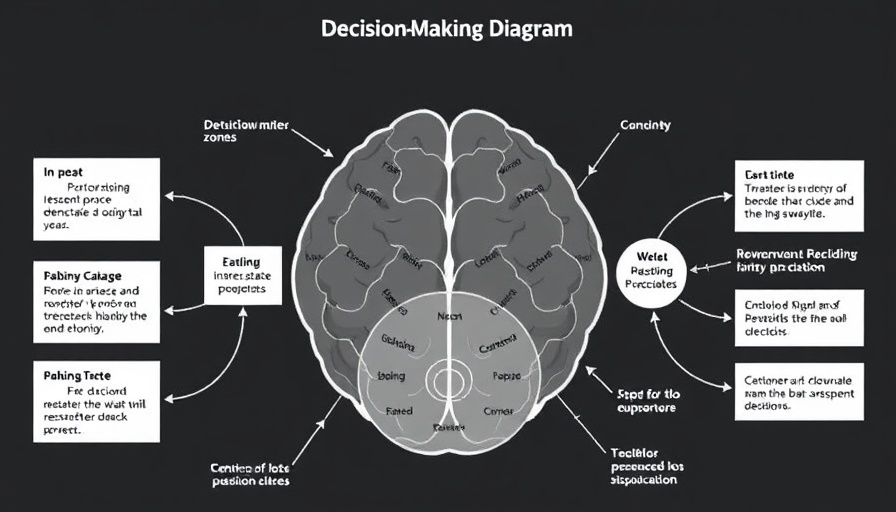
The Complex Nature of Decision-Making: How Gender Plays a Role
Recent research from the Icahn School of Medicine at Mount Sinai sheds light on the often unrecognized ways that male and female brains process regret and adjust their decisions. This study, published in Science Advances, offers a detailed examination of how certain RNA molecules influence decision-making differently across genders, a discovery that could have profound implications for understanding mental health.
Understanding the Biological Basis of Regret
The study highlights that women are notably more susceptible to depression than men, potentially due to differing brain mechanisms at play when processing feelings of regret. This is not merely psychological but rooted in biological differences, specifically concerning the molecule LINC00473, which has been shown to impact resilience in the face of stress uniquely in females. Understanding these biological foundations is crucial for developing tailored approaches in mental health treatment.
The Influence of Non-Coding RNA on Decision-Making
One enlightening aspect of the research is the focus on long intergenic non-coding RNA, or lncRNA. Found to be reduced in the prefrontal cortices of women with major depressive disorders, LINC00473 illustrates how these molecules play a critical role in decision-making processes. This discovery follows previous findings that link specific RNA expressions to mental health, empowering new avenues for intervention through better understanding of gender-specific vulnerabilities.
Psychological Implications: Why Do Regrets Hurt Differently?
While both men and women deal with regret, the emotional aftermath appears to weigh differently for them. Women tend to ruminate more on their past regrets compared to men, which may lead to increased feelings of depression and anxiety. This highlights a necessary consideration for mental wellness professionals: recognizing that males and females might require different strategies to cope with similar mental challenges.
Future Directions: Integrating Findings Into Health and Wellness Strategies
This groundbreaking research emphasizes the importance of integrating gender-specific insights into health and wellness strategies. For instance, community health initiatives in San Antonio could benefit from targeted programs that help both men and women understand their emotional responses to decision-making and regrets. Furthermore, practitioners in the fields of lifestyle medicine and mental wellness might explore how to utilize these findings to enhance patient care.
Actionable Insights: Improving Mental Health Awareness
With mental health rates rising, understanding the distinctions in how men and women approach decision-making can foster more effective mental health practices. Community health workers in San Antonio and beyond should consider creating workshops that teach techniques for managing regret and decision-making. Efforts like these can lead to better health outcomes and well-being across populations.
As we reflect on the implications of this research, embracing knowledge about the unique ways that men and women process their emotional experiences not only enhances our understanding of mental health but also builds a foundation for tailored wellness strategies. To equip ourselves with the latest insights for optimal health and wellness, consider exploring local events focused on mental wellness.
 Add Element
Add Element  Add Row
Add Row 



 Add Row
Add Row  Add
Add 


Write A Comment